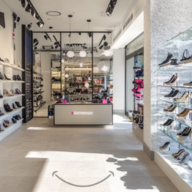Reflections of a retail leader

Retail
190 week ago — 7 min read
Year 2020 was supposed to be many things, but it chose to go viral! It introduced the world to COVID-19 which undoubtedly, has proven to be a challenge of epic proportions—3.8 million lives lost globally, including many in the developed world. While we started picking up where we left, wave two struck India and hit retail especially hard.
The pandemic posed challenges to the very fundamentals of physical retail. Poor economic sentiment, social distancing mandate, reduced business hours, new safety protocols, low customer footfall wreaked havoc on the top line as well as the bottom line. The prime concern however was always staff and customer safety.
That said, every challenge brings with it great learning and opportunities and COVID-19 is no exception. I delve on the learnings from COVID-19 as a CEO, as we move ahead and try to get over this uncertainty.
Prepare for the long battle
Walking the tightrope is never easy. The situation on hand mandated going all out for people while the business called for decisions which were decidedly unfriendly to them. Rationalisation of under-performing clinics (stores) was one among many cost cutting measures that had to be implemented. Empathy is key to decision making at such times. This calls for a willingness to listen to diverse viewpoints before taking decisions. The unfortunate part of these decisions, as a CEO, is a constant battle between personal beliefs on what is right and the business decisions based on survival during a period of crisis. I’m assuming this is familiar territory for many business leaders.
It is one thing to make difficult decisions, another thing altogether to communicate them to the team. Salary cuts and job losses often have to confront stiff resistance and understandably so. However hard these conversations maybe, handling them with honesty and empathy leaves no room for malice. Explaining the business point of view is important as it enables people to understand the rationale. Also, these meetings fall into the bucket of important meetings that need preparation. We tried our best to accommodate staff who lost jobs due to shutdowns and minimised job losses.
During stressful times, the importance of staff engagement and initiatives around mental and emotional health cannot be understated. As an organisation, we did a lot in this area alongside helping team members who were affected by COVID-19. Staff health will continue to be priority going forward for organisations.
Plan for business continuity
The pandemic has rendered grave damage to retail. The cash flow crisis for retailers due to months of shutdown has been massive. While we all say, ‘Cash is King’, we didn’t plan for businesses to shut down for over three months. Ruthless decision making to gain in the long term was the need of the hour. We gave up on certain business streams which were dragging us down to keep the larger ship steady and afloat. Learning from this we have embarked on a project this year to achieve a Zero Based organisation (ZBO) and Zero based budget (ZBB) to ensure the very fundamental of our organisation structure and the cost model that we have built over time is challenged. I sincerely recommend this approach to all retailers as it can surmount challenges similar to the one we are battling now.
Collaborate
We cannot fight this battle alone. Collaboration was key. I spent a large amount of my time during and after the lockdown working with industry forums like RAI, FICCI, CII to help in advocacy initiatives and putting across our issues as an industry to various governments. Collaboration with industry peers is the only way to address common issues like rent challenges with mall owners. It also helps the industry lobby with the government to focus on our issues and challenges as an industry due to continuous shut downs.
Be future ready
Businesses will not survive if its enabling ecosystem is not digital in the next few years. Retail would have survived the pandemic period better if 30% to 40% of revenues came from the digital stream. We must create businesses that are accessible to consumers 24 x 7. India is on the cusp of a Direct to Consumer (D2C) revolution. Online and offline boundaries are disappearing and consumers will interact with brands on both levels. We spent much of last year in strengthening our core tech stack to help us in our digital transformation journey. We are building a whole new D2C ecosystem which enables us to sell our products, services and consultants of outsourcing digital to external marketing agencies are over. Skills like SEO, SEM will have to be housed within the organisation to gain competitive advantage. Parting shot The micro-organism has been in the news since it unleashed one curve ball after another for 18 months now. However, the spotlight has always shone on the adaptability of the human spirit. Life changed overnight for all whether it was the work front or the home front. tions to our clients online. We also forged partnerships with internet first companies like cult.fit to make our consultation and services available to the Gen Z.
Transform the organisation structure
While retailers are looking to build strong digital moats to stay relevant, organisational structures will call for version 3.0. The future retail organisation would include Chief Growth officers, Customer Experience Managers, Chief Digital Officers all of who would work on creating a platform experience which enables more consumers to interact with the brand and buy both on the online and offline channels. The days of outsourcing digital to external marketing agencies are over. Skills like SEO, SEM will have to be housed within the organisation to gain competitive advantage.
Parting shot The micro-organism has been in the news since it unleashed one curve ball after another for 18 months now. However, the spotlight has always shone on the adaptability of the human spirit. Life changed overnight for all whether it was the work front or the home front.
Also read: Lasting wisdom: Lessons from the pandemic for retail businesses
Image source: shutterstock.com
Article published in STOrai Magazine. Article author, Rajiv Nair, is the chief executive officer at Kaya Ltd. With over 20 years of retail experience spanning across multiple formats including departmental stores, specialty retail, hypermarkets and catalogue retailing. His areas of experience include buying & merchandising, retail operations, private label/ brand development and overall P&L responsibilities. He has worked with reputed organisations such as Celio Future Fashion Pvt. Ltd., Shoppers Stop and HyperCity
Disclaimer: The views and opinions expressed in this article are those of the author and do not necessarily reflect the views, official policy or position of GlobalLinker.
View STOrai 's profile
Other articles written by STOrai Magazine
The Art & Science of People Pleasing in Retail
11 week ago
Most read this week
Trending
Ecommerce 7 days ago













Comments
Share this content
Please login or Register to join the discussion